When I first started drinking pu'er, I was very excited about it (and still am), and used to drink it in the evening because of my daily schedule. After a few months, I experimented with not drinking pu'er in the evening, and found that my quality of sleep increased dramatically. I wasn't sleeping so well after pu'er, whether shengpu or shupu.
Since then, I've been managing my "drinking habits" with more care, and present them here for your consideration.
Plenty of studies have shown a detrimental effect on the quality of sleep after consuming caffeine in the evening or afternoon. In light of reading those papers, I experimented with concentrating my tea-drinking in the morning, and have found there to be good results. (Such things will of course be specific to individual physiology, so it is up to each of us to work this out for ourselves.)
Typically, I enjoy a session of shengpu after a light breakfast. Drinking anything on an empty stomach is usually unwise, particularly "cold" substances. My wife heats absolutely everything she drinks, being a product of Ancient Chinese Wisdom(tm) . Due to my time constraints, this breakfast session is usually restricted to 4 or 5 quick infusions. Caffeine output from tea has been shown to follow a negative-exponential curve with increasing number of infusions, so I'm getting the majority of my caffeine right here, at breakfast time.
Ready for my day, I pop the wet leaves into an airtight container, and head to my office.
Since then, I've been managing my "drinking habits" with more care, and present them here for your consideration.
Plenty of studies have shown a detrimental effect on the quality of sleep after consuming caffeine in the evening or afternoon. In light of reading those papers, I experimented with concentrating my tea-drinking in the morning, and have found there to be good results. (Such things will of course be specific to individual physiology, so it is up to each of us to work this out for ourselves.)
Typically, I enjoy a session of shengpu after a light breakfast. Drinking anything on an empty stomach is usually unwise, particularly "cold" substances. My wife heats absolutely everything she drinks, being a product of Ancient Chinese Wisdom(tm) . Due to my time constraints, this breakfast session is usually restricted to 4 or 5 quick infusions. Caffeine output from tea has been shown to follow a negative-exponential curve with increasing number of infusions, so I'm getting the majority of my caffeine right here, at breakfast time.
Ready for my day, I pop the wet leaves into an airtight container, and head to my office.
It's a pretty route to work, and I consider myself lucky in that regard. The journey to and from my office gives me time to forget my research for a while, which is very beneficial. I like to leave it all behind, if just for a little while.
Reaching the office, the wet leaves are transferred into another pot (just a cheap one, in case of damage). I drink this tea for the remainder of the day, infusing it over and over again.
You can see it below, on the little bamboo tea-tray. Kudos if you can tell me which album I'm listening to...
Reaching the office, the wet leaves are transferred into another pot (just a cheap one, in case of damage). I drink this tea for the remainder of the day, infusing it over and over again.
You can see it below, on the little bamboo tea-tray. Kudos if you can tell me which album I'm listening to...
After lunch, I need something, but don't want a fresh infusion of caffeine. While keeping the pu'er leaves in one pot, I use a second pot (which you can see above) for something more neutral - typically (unflavoured) rooibos, which I find malty and tasty, or "wheat tea".
Some tea-drinkers of greater experience than me have recommended drinking wheat infusions for settling a stomach. I find it particularly suits my taste, and my wife is very kind, and roasts a whole batch for me for a few minutes in a clean wok. This is buckwheat, I think.
Some tea-drinkers of greater experience than me have recommended drinking wheat infusions for settling a stomach. I find it particularly suits my taste, and my wife is very kind, and roasts a whole batch for me for a few minutes in a clean wok. This is buckwheat, I think.
A little roast, and the wheat gives a fine flavour when infused. It has a "warm" character, which is good for digestion after lunch. If I were overly concerned with flavinoids, polyphenols, and all that nonsense, I would probably drink just rooibos - but I believe all that takes care of itself if the diet is balanced. (Maybe that's naive.)
The net result is that the majority of my caffeine is taken early in the day, though I drink the leaves all day in brews of ever-increasing infusion time. While the pu'er pot infuses for long minutes, the other pot can produce little shots of something else.
It works for me, and my sleep is deep - certainly deeper than when I take tea in the afternoon or evening. I'm very interested to hear your own experiences of caffeine and its perceived effect on the quality of your sleep.
It works for me, and my sleep is deep - certainly deeper than when I take tea in the afternoon or evening. I'm very interested to hear your own experiences of caffeine and its perceived effect on the quality of your sleep.

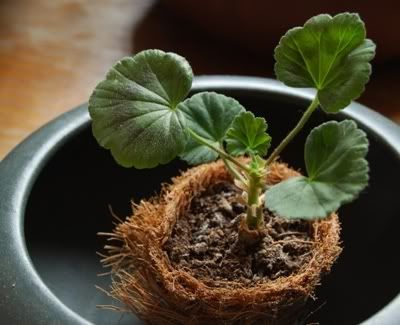
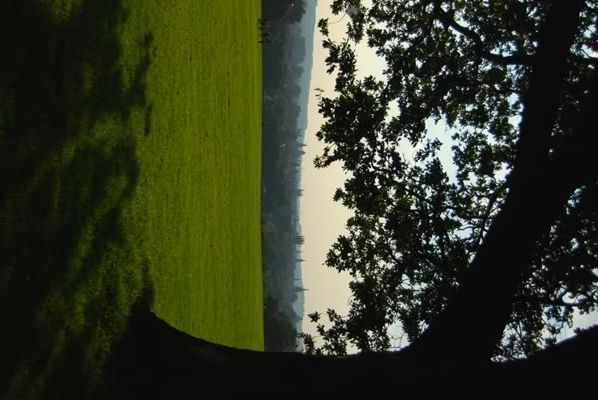
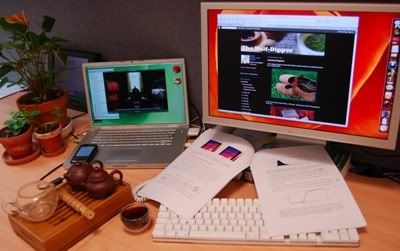
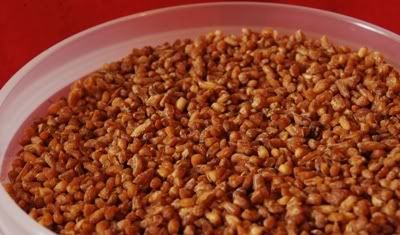
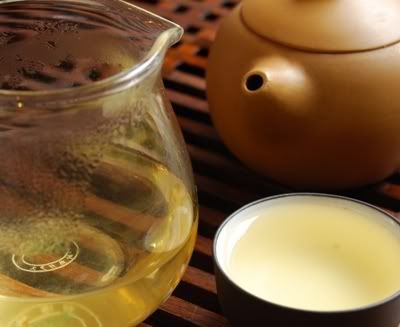
The album is Watershed by Opeth - good choice. My favorite Opeth track is Dirge for November.
ReplyDeleteI also try to stop drinking tea at 7pm. I have less trouble sleeping if drinking shupu at night than sheng, green or black.
I do not understand the comment about your wife's preferences. I do understand that in TCM green or sheng are "cold" and harder on some people's systems - but what does it mean that she "heats" everything she drinks?
I agree with you. Caffeine is best had in the morning. I may be particularly sensitive to caffeine, but if I have any in the afternoon, sleep quality drops off rapidly. I also find if I have more than one cup of coffee, especially black coffee, my left hand twitches. I never have this problem no matter how much tea I drink. I wonder if its the caffeine or not?
ReplyDeleteI would like to comment on the above comment, if I may: Most Chinese people heat everything they drink. Cold things, both cold in the TCM sense and temperature sense are bad for the stomach, can cause diarrhea or 中暑. I find the drinking of hot water one thing that westerners have a lot of trouble accepting. Having lived in China awhile and taken to the habit myself, I offered hot water to a fellow American who came to my house. He became agitated and demanded to know why I had made such an obscene proposition. Another American colleague would get angry every time he thought of the Chinese and their hot water drinking. Hopefully when I go home none of my fellow countrymen will find me out for a closet hot-water drinker.
Dear Brandon,
ReplyDeleteGood eyesight! I thought that the photo would be too low in resolution to be able to tell. :)
My wife makes everything she drinks warm in temperature. Milk, water... it took me some getting used to!
Dear Will,
Subjectively speaking, I find coffee can be aggressive to my body, too. Drinking coffee produces sensations (usually a pulsing feeling in the front of my forehead!) that tea cannot reproduce, even strong tea.
I'm a closet warm-water drinker, too. I think part of the issue is that after drinking warm water for long enough, drinking cold water really does seem like a shock to the system.
I'm not sure about drinking warm water being obscene! I'm amused to hear of your colleague who finds it wrathful, too. :)
Toodlepip,
Hobbes
recently i drank some tea (strong tea,maybe luanguapian or something like that)at ten pm with my co-worker in tearoom ,. i prepared some tea(after my arrival at home) from the plant which used to make a beer ,.i dont know as say in english because iam not native speaker but try it sometimes ,. :D nice day
ReplyDeleteo i forgot my co-worker couldnt sleep untill four am and i sleep very very deep ,.
ReplyDeleteDear Tulstrim,
ReplyDeleteI wonder if you mean hops! I like the flavour... maybe I will try them to see if they help with sleep. :)
Toodlepip,
Hobbes
exatly hops ,.i know a new word ,. but i used a fresh hops and i sleeped like a baby ,.
ReplyDeleteHi Hobbes
ReplyDeletenice to see you back! Interesting topic. The caffeine content of different types of tea is always a mystery to me. Sometimes I feel uncomfortable with some simple green oolong teas and can easily fall asleep after a late night session with an old puerh. Hence I came to the conclusion that it depends on many factors which change over time (according to our busy schedules).
Some tea masters use to say that the caffeine content of certain teas, and therefore its ability to let us stay awake the whole night after a late session, may be related (especially for puerh teas) to the compression of the cakes and to the storage. Loosely compressed tea cakes and mildly wet stored teas are less likely to keep us awake. I personally agree with this view since a couple of weeks ago my wife and I could not sleep for the whole night after a fairly early afternoon session with a very dry stored Snow Mark.
I recently tend to limit my tea sessions to the weekend and stop by 4 or 5pm to avoid any troubles!
Your suggestion of using wheat is new to me but interesting. I will give it a try in the future. Is the liquor you obtain from the brews of this roasted wheat different from Korean barley teas?
Best,
GV
PS - My understanding of the Chinese habit of heating water is related to the need of purifying water for consumption. My parents-in-law in Hong Kong are indeed extremely cautious in drinking any tap water if it has not been preliminarily boiled. Certainly this has also implications for TCM but I see it as a basic habit to avoid nasty consequences on your digestive system!
Dear GV,
ReplyDeleteGreat to hear from you! I'm looking forward to our tea session(s) once this rotten thesis is complete. :)
I have heard people say that shupu is acceptable before bed-time. Indeed, Lei and I tried that for about a month or so - it could be subjective, but our sleep does appear improved without it. People have wondered before it is the theanine and other compounds that promote a calm, relaxed sleep - perhaps this overcomes the effects of caffeine, or causes the body to process it differently. Speculation aplenty!
Oddly enough, I forgot to write about barley, but that's the other "tea" I have here in the office for the afternoon, also roasted by my ever-generous wife. The flavours are similar, but distinctive. Both are highly enjoyable! CB once told me that Korean barley tea is seen as a winter drink, and I can see why, due to its "warm" nature akin to that of buckwheat.
Certainly, there's something in the Chinese habit of a practical avoidance of germs. The water there isn't too great. :)
Toodlepip,
Hobbes
Hi Hobbes
ReplyDeleteI have some "basic" Korean barley teas (easy to get from any Japanese department store in HK). I will try them in the office then as a (temporary) replacement of decent shu pu!
I will look forward to our tea session(s) too. I have just returned back home and I have a couple of interesting stories to tell and teas to try from my recent trip to HK and Taipei.
Keep me posted!
GV
I drink tea all day long and never had any problems
ReplyDeleteB
i drank some yu lan dan cong two hours ago and already boiling a three head of hobs.i refer tomorrow a result of that,.
ReplyDeleteor i"ll count a sheeps,.
hops makes a wonders ,. i calm down a prepared my bed to sleep ,.
ReplyDeleteI am a hardened drinker of young sheng, but I still don't drink it after 6pm. Better to switch to shu come evening time.
ReplyDeleteI am working on decaf Ban Zhang but haven't been able to get it quite right (just yet).
Dear Scotto,
ReplyDeleteCaffeine-free banzhang - haha... do please send me some! It sounds like alcohol-free single malt. :)
Toodlepip,
Hobbes
Although one had a few cups of shu puerh tonight at about eight, one also doesn't fair well with caffeine in the evening. There is a warchest full of herbal teas that gets dipped into every night. Which herb is consumed usually depends on which energy system is most in need.
ReplyDeleteYou mentioned barely tea. Quite popular over here. It is actually classified as a cooling herb in Korean Traditional Medicine even if it's served hot.
Hope you have a good nights rest.
Peace
Cooling in nature, well I didn't know that - thank you. :)
ReplyDeleteToodlepip,
Hobbes
Hi Hobbes,
ReplyDeleteI have tried drink Tie Guan yin cold in temperature. I read a Chinese article talk about Nice Tie Guan yin, If you drink it when is cold. The nice one will still keep good smell, sometimes even better.
Kathy
I know plenty of folks who can drink caffeine late at night and have no problems. Me, if I have too much, sometimes I can sleep and sometimes my mind doesn't want to shut off. But according to my girlfriend, I toss and turn a lot if I have even a little tea before bed. Last night, I did a quick comparison of two teas a couple hours before bed - just maybe 4-5 spoonfuls total, and I was still apparently fitful. While I'm a sound enough sleeper to not remember that I didn't sleep well, I'm sure it's not good to have such poor quality of sleep.
ReplyDeleteI'd love to be one of those people who can drink tons of tea through the day and afternoon, but for me, it just doesn't seem to do good things. Drinking more than 1-2 rounds of strong tea for more than a few days in a row also really doesn't seem to agree with my system. I thought maybe if I kept doing it, my body would adjust, but apparently not.
I rarely drink young sheng, because I do find that it really doesn't agree with me, empty stomach or not (I don't really prefer the taste either). I do drink tea on an empty stomach frequently, though... I usually don't have time for breakfast or a morning snack, and I find that drinking tea lets me hold on til lunch. Obviously eating breakfast first would be the best approach, but I don't think it's going to happen.
I think folks who grew up drinking tea are somewhat immune to it. My girlfriend is Chinese / grew up drinking tea (and has ADD about as badly as I do, which might also contribute to her caffeine immunity), and tea actually makes her sleepy.
hi, what kinds of cereals do you(your wife) roast for tea? and more importantly, how...thanks :)
ReplyDeleteDear Will,
ReplyDeleteThey say that caffeine not only increases the difficulty of falling asleep but also reduces the quality/depth of sleep once you do eventually nod off - I wonder if that's what you're experiencing. Your girlfriend sounds very lucky to be able to drink tea in the evening!
Dear Anonymous,
We use buckwheat or barley - just place 200g or so in a clean wok (we have a small one dedicated for that purpose) and heat on medium-high temperature for a few minutes until the colour darkens and the roasted aroma starts to be released. That's usually enough for many sittings - and you can eat the cereal after you've finished brewing it, for maximum health benefit. :)
Toodlepip,
Hobbes
I have noticed that drinking tea later in the day enhances insomnia. I have been drinking raspberry and fruit teas in the evening but the cereal tea idea is interesting. You have a very interesting blog with great photos. I am a tea lover and will visit again.
ReplyDelete